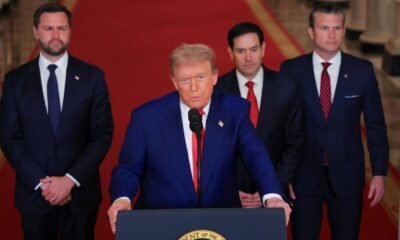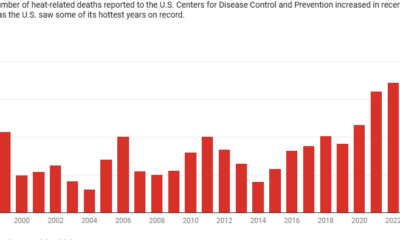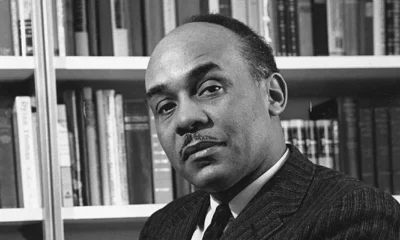2024 election
Essential Insights for the Harris-Trump Presidential Debate: What You Need to Know Before Tuning In

Presidential debates frequently come under scrutiny for their effectiveness in influencing voter opinions. However, with a significant percentage of undecided voters ahead of the upcoming 2024 election, the stakes have never been higher. A recent debate between President Joe Biden and former President Donald Trump on June 27 serves as a pivotal example, although its direct impact remains under debate.
Despite Biden’s decision to withdraw from the race on July 21, the June debate has cast shadows over his viability for a second term. The sudden shift in dynamics has reshaped the Democratic campaign landscape.
Having studied presidential debates since 1980, I advocate for the importance of upcoming discussions. My research methodology includes statistical analysis, surveys, and focus groups—to understand voters’ perceptions and the repercussions on campaign narratives.
As we approach the Sept. 10 debate featuring Trump and Vice President Kamala Harris, it’s crucial to grasp what this means for voters. The narrative around who ‘won’ or ‘lost’ is often misleading and does not necessarily predict electoral outcomes. Historical precedents, including Walter Mondale and Michael Dukakis, illustrate that debate performance does not always correlate with election success.
Instead, voters should reflect on which candidate embodies the qualities and values they hold dear. The debates illuminate both policies and candidate personas, providing insights into their priorities and leadership styles. Past focus group findings show that audience perceptions of candidates’ behavior can significantly influence opinions, as seen in instances where Trump’s conduct in 2020 shocked many voters.
This debate is not likely to unveil new information, especially for Harris, who has not had as long to campaign. However, past debates have often led to discussions that expand upon pointed issues following the event.
Moreover, it’s essential to recognize the multitude of agendas at play in these formats. Often, candidates’ priorities may not align with public interests, resulting in crucial topics going unexplored. With limited time for responses, candidates might gloss over important subjects, offering instead a chance to highlight their agendas.
For undecided voters, the debate serves as a foundation for information rather than a conclusion. Engaging with various media sources after the event and seeking out candidates’ platforms directly is necessary for making informed decisions.
One should also anticipate inaccuracies during the debates. In this high-pressure format, candidates may either intentionally misstate facts or make genuine errors. Viewers are encouraged to fact-check claims through reputable sources post-debate to form accurate conclusions before participating in discussions.
Additionally, watching the vice presidential debate is advisable, as it could provide a unique comparison of the two parties’ tickets. This aspect is particularly relevant since vice presidential candidates may not be as well known to the electorate.
Ultimately, debates are akin to job interviews for candidates, each seeking to demonstrate their qualifications to voters. Engaging in this process is essential for the electorate, as it empowers them to make informed decisions. On debate night, I plan to host DebateWatch sessions at the Dole Institute of Politics, where we can analyze and learn from the discussions collectively.
The power to influence politics lies in the hands of the voter. Utilize that power wisely.
This commentary was originally published by the Kansas Reflector, a sister publication of the Arizona Mirror and a member of the States Newsroom network of local news organizations.


















